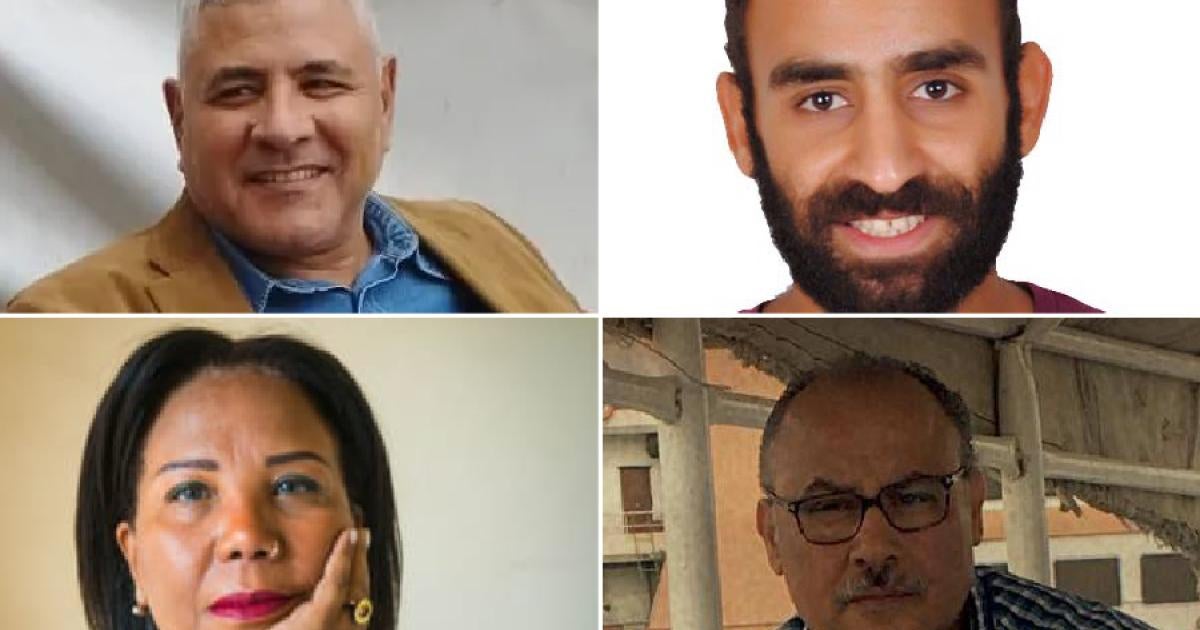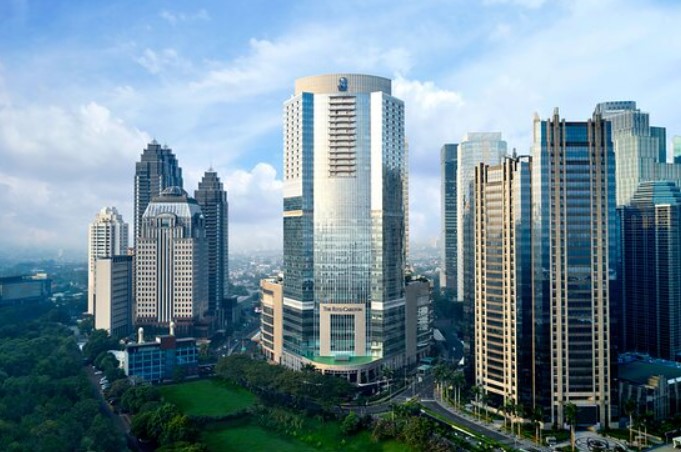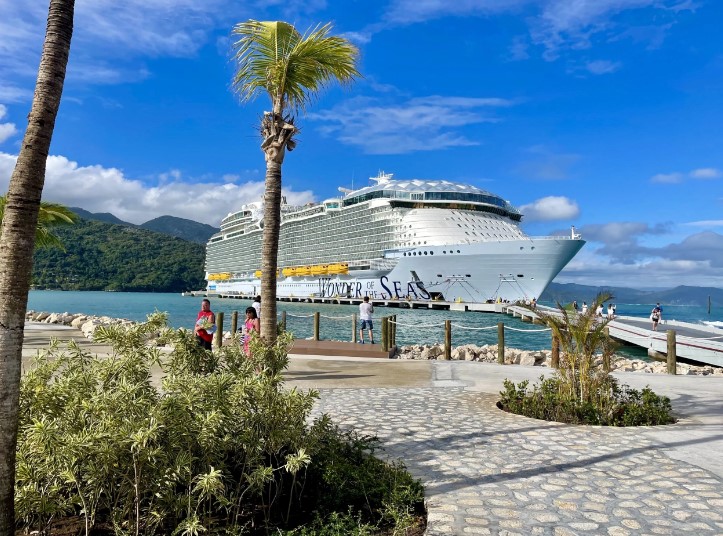(Washington, DC) – Egypt is using arbitrary travel bans to target key members of civil society for their peaceful work, including rights lawyers, journalists, feminists, and researchers, FairSquare and Human Rights Watch said today.
The bans, which authorities usually do not formally announce and provide no clear way to challenge them in court, have separated families, damaged careers, and harmed the mental health of those subjected to them.
“Arbitrary and open-ended travel bans enable the Egyptian authorities to impose a life-altering system of punishment that is barely visible to anyone except those whose lives they are destroying,” said James Lynch, director of FairSquare. “The bans have allowed Egypt to silently pummel its critics without fear of attracting the ire of its donors and supporters in London, Paris, and Washington, DC. Egypt needs to end these arbitrary abusive practices immediately.”
FairSquare and Human Rights Watch spoke to 15 Egyptians whom authorities have subjected to travel bans, for up to six years in some cases.
Human Rights Watch has previously documented that President Abdelfattah al-Sisi’s government has systematically used travel bans to block the travel of dozens of actual or perceived opponents. The Tahrir Institute for Middle East Policy and the Freedom Initiative have also reported on the issue. The groups found that a 1994 interior minister’s decree gives security agencies sweeping powers to impose travel bans without court orders for a renewable three-year period.
Those subject to travel bans told FairSquare and Human Rights Watch that they usually learned about their travel ban in the airport attempting to board a flight, and that the authorities did not provide clear legal ways to challenge these bans in courts. One person said he petitioned the public prosecutor, but the petition was rejected with no explanation. Another raised a case in criminal court to drop the ban, while a third petitioned Egypt’s state council, which hosts the administrative courts to intervene, but in both cases their requests were rejected. The lack of a clear legal basis for the bans and any means to challenge them underscores their arbitrary nature.
Of the 15 people interviewed, six also faced asset freezes that have locked them out of the banking system entirely.
The long-term personal toll of these travel bans and asset freezes has been devastating. Nearly everyone interviewed described losing work opportunities and income. Many said the psychological impact of not knowing when these arbitrary restrictions would end has taken a serious toll on their mental health. They also have a chilling effect on human rights activism as they discourage the public from criticizing the authorities.
Waleed Salem, a graduate student, has been separated from his daughter who lives abroad for four years and was unable to finish his Ph.D. at the University of Washington. He described the indefinite nature of his travel ban as an “open-ended nightmare.”
A human rights defender, Karim Ennarah, has been unable to join his wife in London, where they had plans to live together, for 18 months, leaving him feeling “like I’m single-handedly ruining our marriage.” In April, a travel ban prevented a prominent lawyer, Nasser Amin, from presenting arguments at the International Criminal Court on war crimes in Darfur. It was his “lifelong dream” and a case he had worked on for two decades.
Following an arbitrary asset freeze since 2016, prominent feminist lawyer and founder of the Centre for Egyptian Women’s Legal Assistance, Azza Soliman, could no longer work for the United Nations after losing her access to the banking system, which precluded her from receiving a salary. She also could not sell her car, as it would be considered transferring an asset. Gasser Abdel Razek, a rights defender, said he was blocked from renewing the license for his car, seemingly because it is an asset.
The travel bans have effectively sidelined members of civil society who were regularly in contact with policymakers in the US, Europe, and the United Nations. Mohamed Zaree, the Egypt director for the Cairo Institute for Human Rights Studies, has been banned from travel since 2016, preventing him from attending events such as the UN’s Universal Periodic Review of Egypt’s human rights record in 2019.
The award-winning human rights lawyer Mahienour El-Massry’s passport was confiscated by security agents upon her return from the Vaclav Havel Human Rights Conference in Prague in 2018. She was arrested in September 2019 in the crackdown on anti-government demonstrations and arbitrarily detained until July 2021.
President al-Sisi has declared 2022 as the “Year of Civil Society,” part of a new human rights strategy Egypt unveiled in 2021 after 32 member states of the UN Human Rights Council criticized its rights record. The government has come under international scrutiny in 2022 because it will host COP27, the global climate summit, in November. Human Rights Watch has called the selection of Egypt a “glaringly poor choice” in light of the country’s human rights crisis, including widespread jailing of civil society activists and human rights defenders, and laws that criminalize peaceful assembly.
Under the International Covenant on Civil and Political Rights (ICCPR) and the African Charter on Human and People’s Rights, both of which Egypt has ratified, everyone has the right to leave any country, including their own. Both treaties allow countries to impose restrictions on that right, but they must be clearly provided by law, necessary in a democratic society, proportionate to protect national security, public order, public health, morals, or the rights and freedoms of others, and consistent with other rights (including equality and nondiscrimination). For any limitations to be permissible, they cannot negate the essence of the right.
Travel bans applied as punishments for peaceful work, as in the cases of the people interviewed, are arbitrary and a human rights abuse, including when they are part of a politically motivated criminal prosecution targeting that activism. Any person subject to travel ban should be able to appeal the ban before a court.
The Egyptian Constitution guarantees the right to freedom of movement in Article 62. It states that a reasoned judicial order is required to impose such restrictions and, even then, this should only be for a specified period of time. These requirements were not met in any of the cases documented here.
“The Egyptian authorities should unconditionally lift all travel bans imposed to repress human rights defenders or stop other members of civil society from carrying out their work and end the practice of imposing arbitrary bans,” said Amr Magdi, senior Middle East and North Africa researcher at Human Rights Watch. “Egypt’s strategic partners, including the US and UK, home to the families of several people under travel bans, should press Cairo to end such measures.”
Open-Ended Use of Travel Bans, Asset Freezes
The 1994 interior minister’s decree gives security authorities the upper hand in placing any individual on travel ban lists. It does not state that those placed on a list should be informed or notified. It states that an administrative committee, made predominately of security officers, rather than judicial officials, can receive petitions of appeal. Human Rights Watch and Fairsquare have found no evidence that such a committee was active and no one interviewed in this report said they were able to find a way to communicate with the committee.
Even when the public prosecution or a judge or a court is involved, Egyptian authorities have used arbitrary travel bans as punitive measures. Since 2015, travel bans have been imposed against more than 30 activists in the notorious Case 173 of 2011, in which the state has been investigating dozens of nongovernmental groups for receiving foreign funding. Only in late 2021 and early 2022 were less than a handful of these activists able to travel abroad. Many named in the case are still subject to bans though no one has been sent to trial.
Many nongovernment group workers prosecuted in Case 173 have had their assets frozen for years. At time of writing, the assets remain frozen for 11 activists from Case 173, including 2 who managed to get their travel bans lifted.
Egypt has squeezed its critics with open-ended travel bans and asset freezes. Although these individuals have been spared from languishing in prison, the measures exact an often hidden, yet punishing toll, on their personal and professional lives. These are a few of their stories.
The War Crimes Lawyer
Nasser Amin, a prominent rights lawyer, has for two decades documented atrocities in Sudan’s Darfur region with a view to bringing prosecutions for war crimes. In December 2021, he was appointed by the International Criminal Court to represent Darfur victims – the first case from the Arab world to be tried at the court. Most countries would celebrate Amin’s success, but Egypt barred him from attending the opening session on April 5, 2022.
Amin is the director of the Arab Center for the Independence of the Judiciary and Legal Profession (ACIJLP), which advocates for judicial independence. Amin and his wife, Hoda Abdelwahab, who serves as ACIJLP’s executive director, are among at least 31 nongovernmental organization workers banned from travel since 2015. Their organization is ensnared in Case 173, in which Egypt accuses nongovernmental groups of obtaining foreign funding. In 2021, an investigative judge began closing investigations against some of the organizations and individuals. At first, Amin, who also served as a member of the National Council for Human Rights under al-Sisi’s government, was hopeful this meant he would be cleared to travel to the Hague. But the public prosecutor failed to respond his request to travel. “It was my lifelong dream,” Amin said. He explained that he was only able to attend online, which prevented him from presenting arguments.
The travel ban has wreaked havoc on Amin’s career. It prevented him from applying for positions with the United Nations on mandates related to torture and extrajudicial killings. He said his clients in Cairo started withdrawing from his private practice after a media smear campaign tied to Case 173. “A lot of clients were scared away from the firm,” he said. So many left that he said he had to sell his office space to pay university tuition for his two children. Amin says he cannot bear to watch the sight of a plane passing overhead, because it reminds him of the ban. “It’s painful just to hear the sound,” he said.
Amin told FairSquare and Human Rights Watch that recruiting new staff has never been so tough. “Banning all the human rights activists sends a terrifying message to the next generation,” he said. “No one can get into human rights now without paying a huge price.”
The Graduate Student
Waleed Salem is a doctoral candidate in political science at the University of Washington and a visiting scholar at the American University in Cairo. In May 2018, as he was finalizing his doctoral research on Egypt’s judiciary, plainclothes police handcuffed and blindfolded him and shoved him into a car as he left the office of a constitutional scholar in Cairo. “It was one of my last interviews,” he said. “I was supposed to head back to Seattle in June to teach.” Instead, he spent nearly seven months in Cairo’s Tora prison on charges that he had joined a terrorist organization and had spread false news.
The authorities have banned Salem from leaving Egypt ever since. At a hearing on December 3, 2018, the judge rejected the prosecutor’s appeal to keep him in jail. He was released a week later. His release order included probation; for the next fourteen months he had to report to a police station twice a week. On being released, he had been given no information to suggest that he was under a travel ban. However, in May 2020, after finishing probation, he tried to travel back to the United States. National security agents in the airport interrogated him and confiscated his passport.
Salem says prison was easier than the “unbounded nightmare of open-ended incarceration” that he has experienced since. Before his arrest he planned to relocate to be near his 13-year-old daughter, who lives in Poland with his former wife. He has not seen his daughter in over four years because his former wife is afraid to bring her to Egypt. “Last time I saw my daughter in February 2018, she was just over 100 centimeters tall. Now she’s almost 165 centimeters. She’s an entirely different person.”
The ban has derailed his Ph.D. The University of Washington cut off his fellowship money, which was contingent on teaching classes in Seattle. The teaching grant was his primary source of income and was meant to help cover student debt. “Now I’m relying on my siblings because I’m hardly making any money,” he said. The whole ordeal plunged him into depression. He has not been able to write, and he worries that follow-up interviews from Egypt are too risky.
The University of Washington and several US-based academic societies such as the Middle East Studies Association and the American Political Science Association have written letters to Egypt’s president, prosecutor general, and National Council for Human Rights requesting that Salem be allowed to leave the country and return to his studies, but none of the letters received a reply.
Salem’s own petition to the public prosecutor to lift the ban was rejected in February, after eight months of review, with no explanation. Salem has spent the last decade studying Egypt’s judiciary, but he has been unable to bring this expertise to bear on his own situation. “I’m unable to wrap my mind around the cruelty of separating a father from his daughter for unstated reasons – and with such ease,” Salem said.
Internationally Known Activists
After the November 2020 arrests of the then-director of the Egyptian Initiative for Personal Rights (EIPR), Gasser Abdel Razek, and his colleagues Karim Ennarah and Mohammed Basheer, international condemnation of their detention led to authorities releasing them after 15 days. Celebrities like Emma Thompson, Stephen Fry, and Scarlett Johansson were among those who had rallied for their release.
However, the three soon discovered that they had been subjected to arbitrary travel bans and assets freezes. After airport security officials refused to let Ennarah board a plane citing a “legal order”, his lawyer went to the prosecutor’s office to find out if there was a ban against him. Officials there said they had no knowledge of any legal order. It was only when Abdel Razek’s lawyer visited the prosecutor’s office, that officials called an unspecified “agency” and confirmed that a ban was in place.
Despite multiple requests, they have yet to get a hearing to appeal the asset freeze, and the courts have refused to grant them an appeal against their travel bans. The founder of the EIPR, Hossam Bahgat, has also been subject to a travel ban and asset freezes since 2016, as part of Case 173. “It doesn’t generate headlines like photographs of people in handcuffs and in cages and there’s no outrage after a travel ban,” Bahgat told FairSquare and Human Rights Watch. A fifth member of the organization, Patrick Zaki, is also under a travel ban after being released in December 2021, from 22 months of pretrial detention, pending trial.
The EIPR, established in 2002, is one of the country’s leading organizations, and its work to document and campaign against human rights violations has made it a target for the increasingly repressive policies of al-Sisi’s government. The group and its members face an array of measures that make it almost impossible for them to function normally.
The EIPR staff under travel bans and assets freezes said the measures have dismantled their personal and professional lives. Before his arrest Ennarah was set to move to London to be with his wife, a British filmmaker. Because he cannot travel, and she cannot move her work to Egypt, the ban has forced them into a long-distance relationship, leaving him feeling “lonely because of the separation but also guilty most of the time.”
An Egypt-based university and a number of other organizations retracted offers made to Ennarah because they would not or could not pay him outside of the banking system. “There are periods when I feel really depressed and isolated. Being unable to work is completely debilitating. It’s a perpetual state of legal and financial limbo.… I’ve been approached for a few jobs but they always withdraw the offer when they find out I’ve got a bank freeze,” he said.
One of the most difficult aspects for those affected by the bans is their open-ended nature and their inability to challenge them. “In the background of my mind there’s always the thought of feeling permanently stuck. I know the process is only legal in appearance,” said Ennarah.
Ennarah said that many under bans find it difficult to ask for international solidarity and support for cases while so many other human rights defenders, journalists, and lawyers are languishing in Egypt’s jails, facing torture and unfair trials. “It’s a very effective silent method of persecution. Precisely because a lot of people are in prison. It’s almost considered a small price to pay in comparison.”
Abdel Razek was passed over for a senior post with a major international organization after they learned he was a “terror suspect” in an open-ended case. He said, “What we’ve learned the hard way is people assume when you’re released that the case is closed.… So I went through three [job] interviews, and I had one last interview to do with the head of the organization. In the last interview, I got a feeling they don’t realize that I’m actually a ‘terrorist suspect.’” The asset freeze even prevented him from renewing the license for his car.
Alongside the EIPR, few rights defenders have rattled the Egyptian authorities like lawyer Gamal Eid. For decades he has fought for freedom of expression and documented the state’s most egregious rights abuses. The work has won him numerous international awards. If he were jailed, it would be likely to ignite international condemnation. To avoid this, Egypt has boxed him in by other means.
Eid is the founder of The Arab Network for Human Rights Information (ANHRI), which is one of the groups ensnared in Case 173. Eid was subject to a travel ban and his assets were frozen in 2016 as part of the case. In January 2022, ANHRI announced it was shutting down its operations because of the government crackdown but Eid has remained one of the state’s most vocal critics.
Eid’s wife, who is a US citizen, and daughter moved to New York in 2017. The ban has prevented Eid from visiting them. As a result, his US green card expired. Eid also lost much of his income, which came from human rights lectures, seminars, and workshops he regularly led before the ban. Eid also lost out on work with international and UN entities. “There’s been a lot of opportunities, but I can’t work,” he said.
In 2019, he was violently assaulted on two occasions by individuals he believes were either security services members or people working under the direction of the security services. The first time, he suffered broken ribs, and in the second attack, he was pinned to the ground and doused with paint. Eid said the assailants in the first attack carried walkie-talkies, a hallmark of security officials, as in Egypt it is illegal for civilians to carry these devices. His car was stolen the same year. “The winch and an officer in uniform were caught on camera,” said Eid. When he borrowed a friend’s car, that one was stolen too. He said that judicial authorities did next to nothing to investigate the attacks.
For Eid’s organization, the asset freeze was the final straw, coming after numerous members of staff had been the subject of arbitrary arrests and other forms of harassment over a period of years. A 2019 law requires organizations to register with the government, but the asset freeze made this impossible. “I can’t even sign the paperwork or open a bank account because of the asset freeze, so how can I register it?”
The Coptic Researcher
Patrick Zaki was returning from Italy in February 2020 when he was arrested by National Security Agency officers at Cairo airport. During his interrogation, officers blindfolded Zaki for 17 hours, subjected him to electric shocks, and beat him. Zaki, 31, is a researcher with the EIPR and part of Egypt’s Coptic Christian minority. His alleged crime is “spreading false news” in connection with a July 2019 article he wrote about discrimination faced in everyday life by Christians in Egypt. Zaki was held in pretrial detention for almost two years. An Emergency State Security Court, whose decisions are not subject to appeal, began his trial in September 2021 and in December 2021 ordered his release while the trial was ongoing. He awaits the final court decision, and if convicted could be sentenced to up to five years in prison.
Zaki is a graduate student at the University of Bologna, pursuing a Master of Arts in gender studies. He had completed just one semester at the time of his arrest. The day after his release in December 2021, he immediately applied for a new passport to travel back to Italy since his previous passport was confiscated and never returned.
“I wanted to travel right away to catch the semester and be there in time for exams,” he said. When he was released by the court, he was given no reason to think that he was subject to a travel ban. But shortly after getting a new passport, Zaki was informed by an intermediary with sources at the Interior Ministry that he was banned from travel until the case is closed. Zaki filed a request to the public prosecutor’s office to permit his travel to Italy to complete exams until the next court session. It rejected the request without explanation.
Zaki’s court hearings have been postponed ever since. At the last court session, on June 21, 2022, the judge postponed the case until September 27, 2022. The upcoming session will mark a full year since the initial hearing was postponed, last September. The long delay has put Zaki at risk of having to drop out of school. With Covid-19 restrictions coming to an end, his university announced that beginning next fall, no more classes or exams will be administered online.
“If I’m kept here, I won’t be able to complete my studies,” he said. “It’s going to be really damaging.” No similar program of study exists at Egyptian universities. His plan had been to do a doctorate while continuing research and advocacy on religious minorities and gender in the Middle East. Now that plan is in jeopardy. “I love academia and I love human rights,” he said. “So, I wanted to pursue both in tandem.”
Zaki’s longtime partner will return to Italy in September to continue her own studies. He worries they will be separated by his situation. “This is one of the biggest problems for me,” he said.
He added that the ban also has prevented him from attending several important professional conferences on human rights, including a recent one by Italy’s la Repubblica newspaper in Bologna where he was the keynote speaker. “I have tons of conferences I’m supposed to be attending and very important events, but I can’t go,” Zaki said. “This is affecting my career in a really big way.”






More Stories
How can a lawyer help you after a major accident
Why Is Hiring A Lawyer A Crucial Step To Take After An Accident?
Jafar Panahi’s Lawyer Quashes Rumors Director Has Left Iran For Good